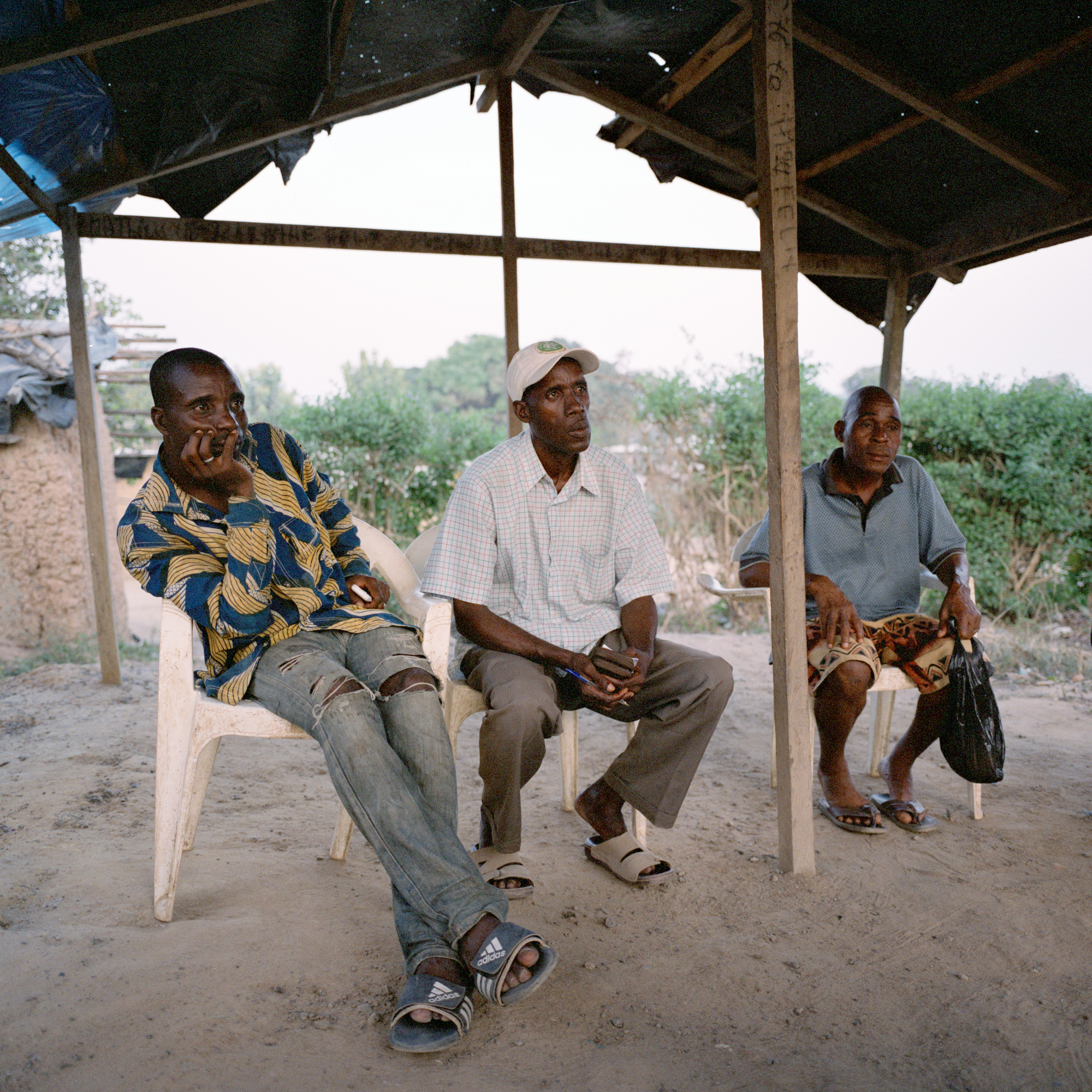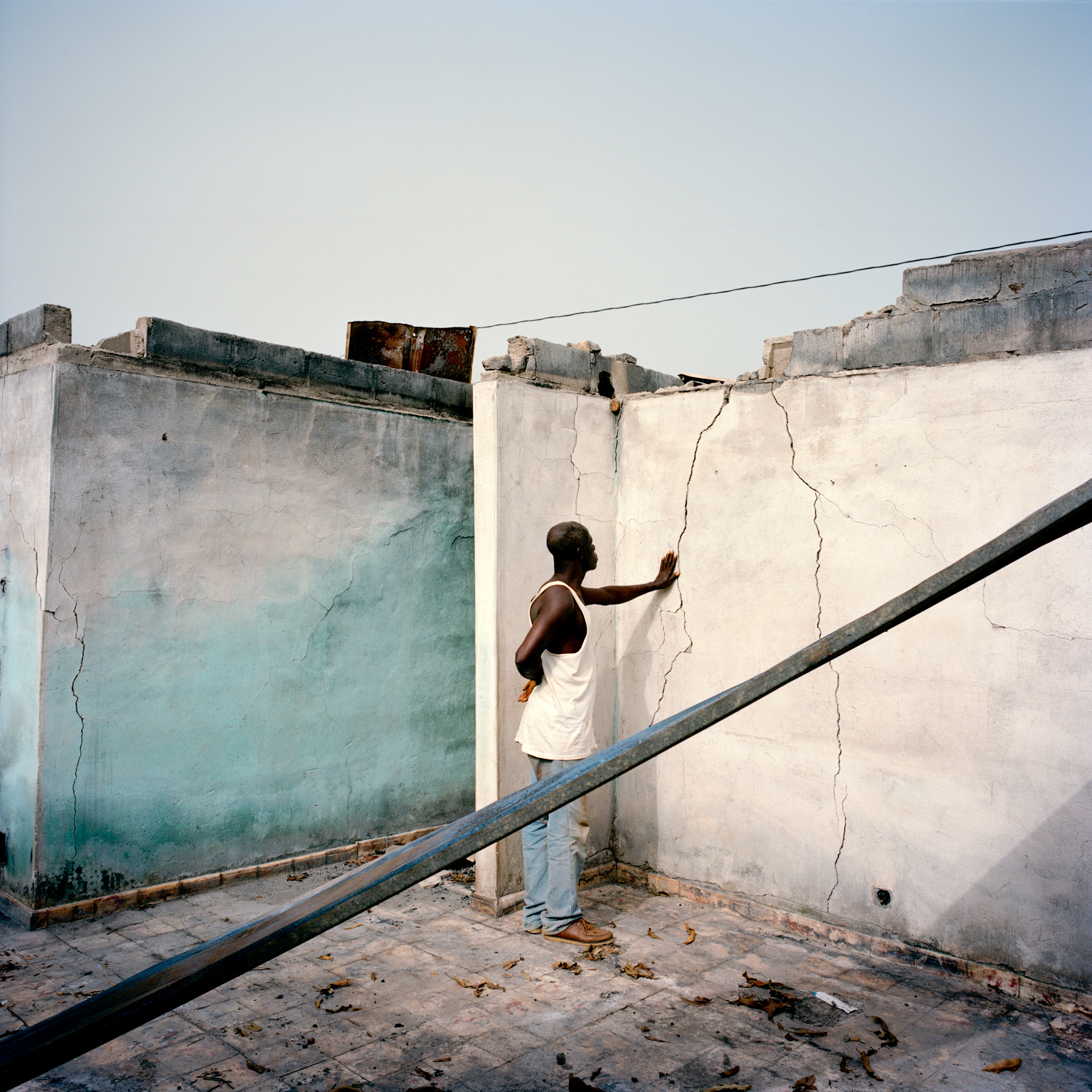
La côtiere—the coastal road. That's what everyone calls it. But there's never a view of the coast, and it's not really much of a road. It heads west from Abidjan toward the Liberian border, and its two lanes of blacktop are cratered with potholes, many so large that all four of your car tires can sink into the same mud at once.
It's only 200 miles on the coastal road from Abidjan to San Pedro, Ivory Coast's main western port town, but the drive can take all day. Many trucks—flatbeds hauling lumber or tankers full of fuel—take inland roads between the two cities, adding almost 100 miles to their journey but arriving in better shape than they would have on la côtiere. About two hours outside of San Pedro we stopped in Moussadougou, a town of some 30,000 people living in mud huts topped with thatch or corrugated tin. Of the 30,000 inhabitants, only 150 are considered indigenous—those from the Bakwé ethnic group, close relatives of the Kroumen, who live in southeast Liberia.
We met first with the chief of the "foreigners"—those who came to live in the village from elsewhere. Frequently in Ivory Coast "foreigner" means someone from Guinea or Mali or Burkina Faso, but it can also mean anyone from another part of Ivory Coast—someone from one of the other 60-odd ethnic groups in the country. In Moussadougou the foreigners were mostly Ivorian, coming from Odienne, a city in northwest Ivory Coast, not far from the Malian border.
The chief of the foreigners was Moussa himself (the suffix "-dougou" means village in Malinke). Sidibé Moussa had founded the village with the permission of an indigenous chief in 1964. He'd come down from Odienne in his early 30s seeking work, and once he and his wife had built themselves a hut, they began having children and sent word to their families back home to come help them work the land. They came in droves, quickly turning the dense virgin forest into a vast maze of mud homes surrounded by acres and acres of cocoa trees. Today they make up more than 99 percent of the population—most of them born and raised in Moussadougou—but still they are not considered the owners of the land on which they live and work. It is the small group of 150 Bakwé residents—who moved to the village after Moussa and his relatives had lived there for some time—who are seen as the rightful owners of the village and cocoa plantation lands.
This, as you might have guessed, tends to cause a bit of tension. It is also an extremely common problem in Ivory Coast, and one that is frequently cited as the root cause of the Ivorian civil war.
"We just want to work the land and grow our cocoa," Moussa, who is now nearly 80, told me. "And the locals keep making rules about what we can or can't do. They just want to live on the backs of others. They don't know how to work for themselves. But we get along okay. Our children are in school together, we play soccer together."
The war never quite reached this far south, but the conflict still had a profound impact on how the two sides see each other in Moussadougou. The indigenous Bakwé aren't nearly as ready to forget past tensions and move on.
"We, who are from this land, should have certain rights," said Kofi Wodoh, the 45 year-old president of the Bakwé youth committee. "But on the other side they're much more numerous. We have no peace or security. We're scared."





